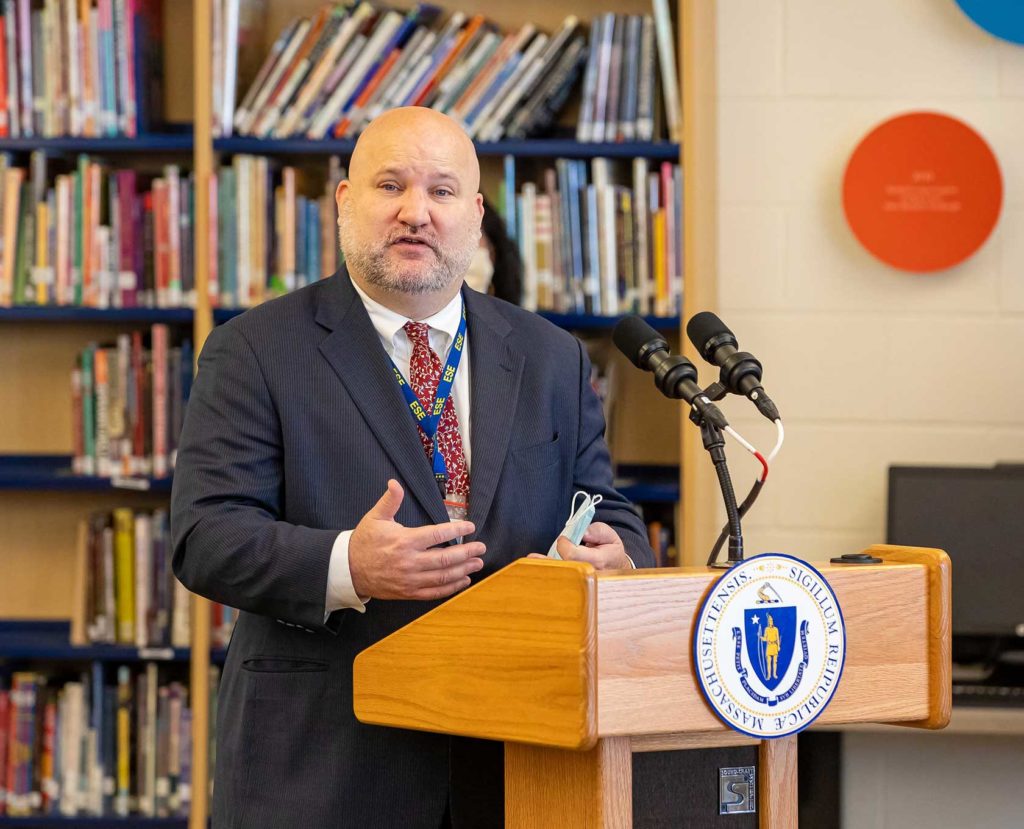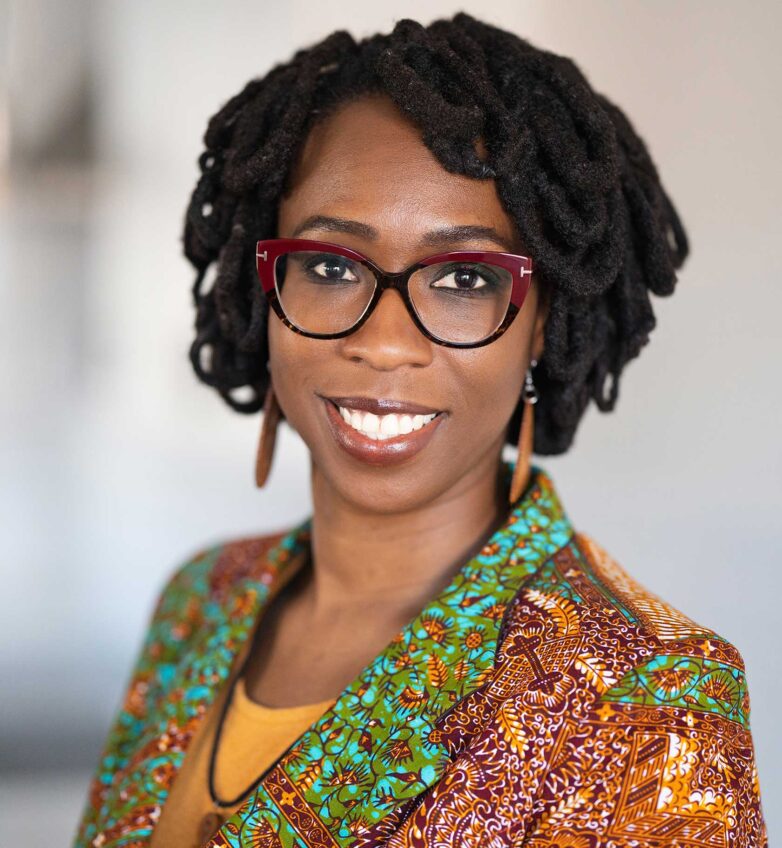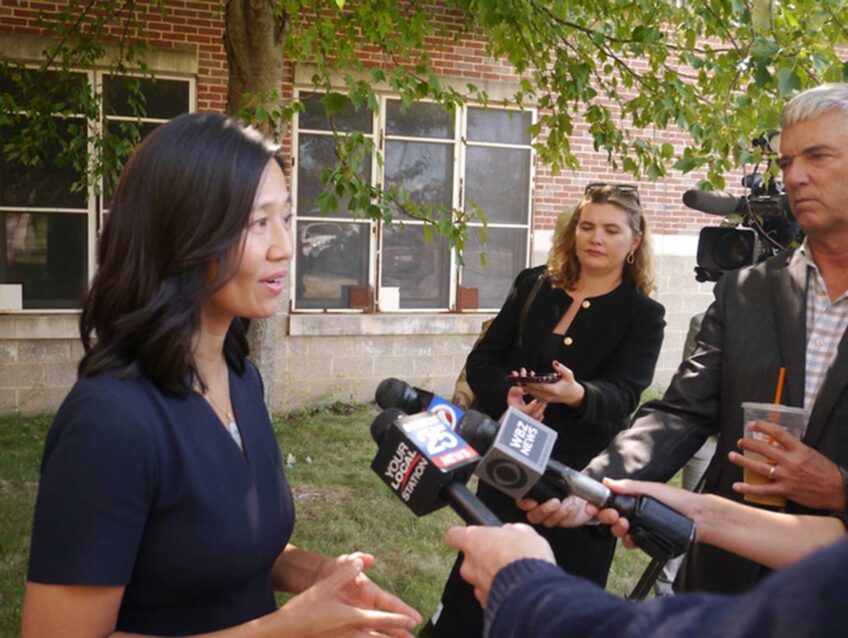Is receivership in the cards for BPS?
BPS officials say they’ve met terms of agreement with state

Before Boston Public Schools officials became consumed by the demands of remote learning, distributing Chromebooks, keeping track of disappearing students and other pandemic-era challenges, there was the looming threat of a state takeover.
A review by the state’s Department of Elementary and Secondary Education released in February of 2020 found that 34 of the city’s schools had student populations who scored in the lowest 10% on the state’s MCAS standardized exam.
BPS Superintendent Brenda Cassellius in March of 2020 signed a memorandum of understanding with the state, agreeing to take actions to improve instruction and conditions in the 34 low-ranked-schools and districtwide. After a year-long pandemic pause, that MOU is again in force, with district officials reporting progress.
The MOU didn’t discourage Board of Elementary and Secondary Education member Matt Hills, a managing director of a private equity firm, from suggesting last Tuesday that the state again consider receivership of the Boston Public Schools.
“I don’t know how you can address the organizational-wide issues that were laid out a year-and-a-half ago, that have probably gotten worse, without someone who has both the responsibility, authority … as well as accountability of a receiver,” Hills said, as quoted in the Boston Herald.
While Hills pressed for receivership, state Education Commissioner Jeffrey Riley was noncommittal.
“It’s obviously not on the agenda today, and I hear your concerns,” Riley told Hills during the monthly Board of Elementary and Secondary Education meeting last Tuesday. “I would also say it’s a process we want to go through and, to be continued.”
Cassellius agreed to the MOU after DESE officials released a scathing audit of BPS that found that the district wasn’t making progress in turning around schools where students had low test scores.
“The district does not have a clear, coherent, district-wide strategy for supporting low-performing schools and has limited capacity to support all schools designated by [the state] as requiring assistance or intervention,” the audit report found.
Hills’ tough talk aside, BPS officials say the district has successfully implemented many of the elements of the MOU Cassellius signed.
“The onset of the global pandemic called for a shift in strategy but also shed a brighter light on the inequities in the system,” a BPS spokesman said in a statement sent to the Banner. “The work at hand remains the same, creating opportunities for students to feel connected to their peers and teachers, clearly defining learning expectations and providing materials and training to meet those expectations, investing in learning spaces that are modern, safe, and welcoming.”
While the state kicked in $4 million in funding to help the district meet the terms of the MOU, the administration of former Mayor Martin Walsh hiked the school budget by $100 million last year, enabling the district to hire 41 instructional coaches, 48 social workers and 33 family liaisons — positions that will help the district improve conditions at schools with student populations that score low on the state’s standardized tests.
The district also invested $2.5 million in upgrades to bathrooms in BPS buildings —another area the state cited as needing intervention — and has committed another $10 million for such repairs to be completed through fiscal year 2023/2024.
The threat of receivership
State receivership is a controversial move that has so far been deployed in only three districts — Lawrence, Holyoke and Southbridge. Each of those communities remains among the 10 lowest-ranked school districts in the state, as measured by the state’s ranking rubric, which relies heavily on scores on the Massachusetts Comprehensive Assessment System (MCAS) exam. Lawrence has been under state receivership for nine years, Holyoke for six years and Southbridge for five years.
Boston Teachers Union President Jessica Tang was critical of Hills’ suggestion that the state education board consider a takeover of the Boston schools, citing the state’s own record.
“Why would he think this was a good idea?” she said. “Nobody in the education advocacy community has been asking for an intervention. Nobody thinks it’s a good idea.”
In Boston, two individual schools that have been under state receivership, the Holland and Dever Schools, have also struggled. State officials placed the Dever under the administration of an education startup called Blueprint that cycled through five principals in two years and failed to raise student test scores despite receiving $1.3 million in special state funding and $543,000 in federal grants. Seven years later, the school is still in receivership.
The Holland, now run by another nonprofit called Up Education Network, similarly sits near the bottom of the state’s school rankings. The school drew fire during the 2014/2015 school year as it racked up more suspensions of kindergarteners than any other school in the state.
While past state interventions have seemed to have little success, DESE’s MOU with BPS differs in that it has left implementation of changes up to the district. However, if state officials deem progress to be inadequate, the threat of receivership looms, as Hills made clear last week.
Tang said BPS is making progress in meeting the goals outlined in the MOU with the state.
“BPS has held up its end of the agreement,” she said. “They’ve implemented everything they need to implement and more. DESE needs to provide the supports it said it would provide and support stakeholder-informed initiatives, not top-down interventions.”





